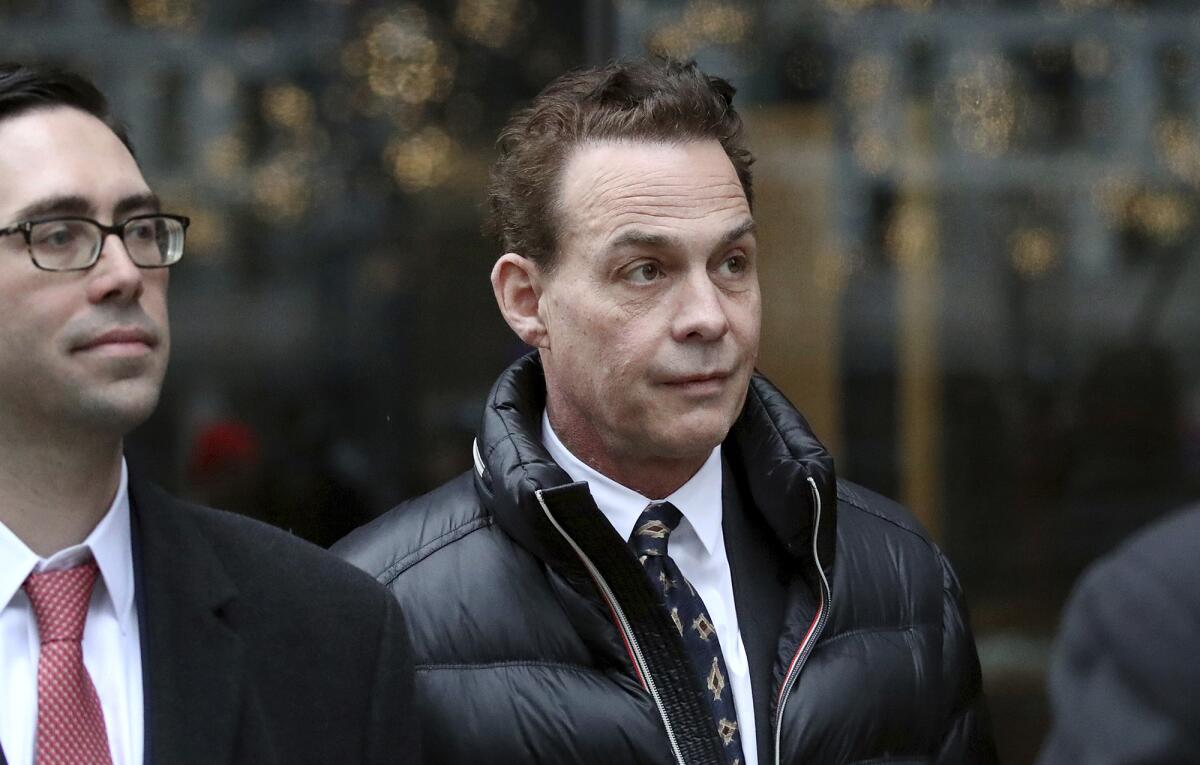Trump pardons USC father in college admissions scandal

In the final hours of his presidency, Donald Trump granted a pardon early Wednesday to a Miami developer accused of securing his daughterâs admission to USC through bribery and fraud.
According to a White House announcement, Robert Zangrillo received a âfull pardon,â the sole defendant in the college admissions scandal to do so. Zangrilloâs pardon was backed by numerous businesspeople, including L.A. developer Geoff Palmer.
The White House said that Zangrillo also had the backing of investor Thomas J. Barrack, an alumnus and trustee of USC, even though prosecutors considered the university to be a victim of the alleged admissions fraud.
After the pardon was announced, a spokesperson for Barrack denied involvement.
âMr. Barrack had nothing whatsoever to do with Mr. Zangrilloâs pardon,â the spokesperson said in a statement. âHe never intervened and never had discussion with anyone about it. All reports to the contrary are patently false.â
The White House news release described Zangrillo as âa well-respected business leader and philanthropist,â and offered that his daughter Amber âdid not have others take standardized tests for her.â The Trump administration also claimed Amber Zangrillo was âcurrently earningâ a 3.9 grade-point average at USC, but a university spokesperson confirmed to The Times that she was not presently enrolled there.
Federal prosecutors in Massachusetts alleged that Amber Zangrillo gained admission to USC because of an arrangement involving her father, Newport Beach consultant William âRickâ Singer and USC athletics administrator Donna Heinel.
Prosecutors alleged that Amber Zangrillo turned in an application that falsely said she rowed about 44 hours per week for 15 weeks a year. And apparently to improve the grades in her application, prosecutors said, one of Singerâs employees, Mikaela Sanford, secretly took classes on her behalf.
In a conversation intercepted by investigators, Singer told Robert Zangrillo that his daughter would go through USCâs admissions process as an athletic recruit. After she was accepted, Zangrillo sent $50,000 to USCâs athletics department, in accordance with Singerâs instructions, and later paid $200,000 to Singer, prosecutors said.
Heinel, a former administrator in USCâs athletics department, had not categorized Zangrillo as a recruit but as a âVIP,â even though she was not an elite athlete. Prosecutors contended that although Amber Zangrillo was ultimately granted admission as a VIP, and not a recruited athlete, her father understood that she was being fraudulently packaged to USC as a gifted rower.
But Robert Zangrilloâs lawyers disputed that their client carried out a bribe to land his daughter a spot at USC.
âThe notion that Robert Zangrilloâs $50,000 check to USC, made after his daughterâs admission, was a âbribeâ is legally wrong â there was no quid pro quo corrupt agreement between Mr. Zangrillo and USC that brought this relatively ordinary gift to a university into the orbit of the federal criminal law,â his lawyers wrote in a 2019 filing. âIt was a donation indistinguishable from the vast numbers of other donations by parents of students made to USC and apparently to other universities and colleges nationwide.â
Zangrillo pleaded not guilty and launched a legal battle that rested in part on the theory that USC routinely cast the offspring of donors and other prominent individuals as âVIPâ applicants. A trial had been scheduled for September.
Times staff writer Matthew Ormseth contributed to this report.
More to Read
Sign up for Essential California
The most important California stories and recommendations in your inbox every morning.
You may occasionally receive promotional content from the Los Angeles Times.











